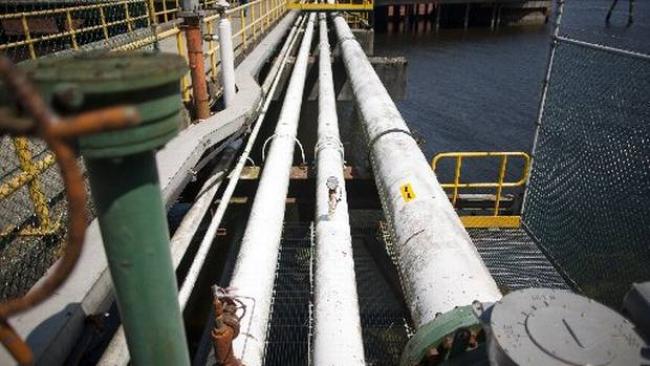Articles Menu

As one Kinder Morgan crew worked on stemming an oil leak from its Trans Mountain pipeline in British Columbia on Thursday, another worked on winning over the province’s reluctant public for a major expansion of the line.
For the second time in as many weeks the company was forced to shut down the only pipeline linking the Alberta oil fields with a westcoast shipping port because of a leak, this one about 40 kilometres east of Hope, B.C.
It wasn’t until the early evening that the company was allowed by the National Energy Board to restart the line, and Kinder Morgan must now install a steel sleeve over the affected area of pipe and removed contaminated soil.
“We have, really, a culture of zero tolerance. Our focus, our job is to keep the oil in the pipe,” Greg Toth, senior project director for the Trans Mountain expansion, said as his team prepared for another of the dozens of public meetings they’ve hosted throughout B.C. and Alberta prior to filing an application with the National Energy Board.
A 15-member crew worked through the night, and Kinder Morgan said Thursday that between 20 and 25 barrels of oil spilled, or up to 4,000 litres. Two weeks prior, several barrels of oil seeped from a crack in the line near Merritt, about 120 kilometres north of Hope.
“We’re disappointed that it happened but I think you can point to the fact that both of these leaks were found as part of our ongoing integrity program work. We were there on the right-of-way to dig up these features and it’s unfortunate that they began to leak before we got there,” said Mike Davis, the senior director of marine development for the expansion project.
An emergency-response team from the energy board was on site Thursday to monitor the repair and cleanup of the rural site, about 150 kilometres east of Vancouver.
There are no residences near the site, she said.
The energy watchdog agency said its investigators will look at whether the two incidents are isolated or similar in nature. Taylor said the board could not yet confirm the company’s estimated release volume, but said 80 cubic metres of contaminated soil was removed.
The agency said in a statement released in the early evening that it will take the necessary time to conduct its investigation and can’t provide an exact completion date.
However, Kinder Morgan must inspect the newly installed steel sleeve weekly until the defect is cut out and replaced with a new section of pipe, and that task could take about one month, said the energy board.
On the list of the agency’s other requirements are the maintenance of fencing around any exposed pipeline and patrols of sections identified for what are known as seam-weld integrity assessments.
Pipelines and the oil tankers that go with them have been a hot-button topic in British Columbia, and both men said they have been recurring themes in the 37 public meetings their team has hosted in communities all along the would-be route.
Resolutions have been passed opposing the expansion by the city councils of Vancouver and Burnaby, where a 2007 construction accident rained down 230,000 litres of oil on a Burnaby neighbourhood.
But the Trans Mountain team say the company, from the beginning, has taken a local, community-by-community approach.
“We’ve been here for 60 years, so I think we really do understand the political culture here in B.C.,” Davis said.
The open house in Burnaby on Thursday night will elicit feedback on the proposed route of the new pipeline, which will stray significantly from the existing line because of the amount of development that has occurred since the original pipeline was constructed in 1953. The company will attempt to avoid private land, routing the line along abandoned railway lines if possible.
Essentially, the existing 1,150-kilometre line will remain in place, carrying refined products, synthetic and light crude. The “expansion” involves 980 kilometres of new line that will carry heavy oil, or diluted bitumen, as much as possible of it laid in the ground beside the current line.
The capacity will increase from the current 300,000 barrels per day to 890,000 barrels.
Kinder Morgan spokesman Andy Galarnyk said the exact cause of the leak has yet to be determined.
[Top photo: Various pipes including crude oil pipeline leading from Alberta is seen far right at the Kinder Morgan Westridge marine terminal in Burnaby, B.C. in this file photo.
(Rafal Gerszak for The Globe and Mail)]